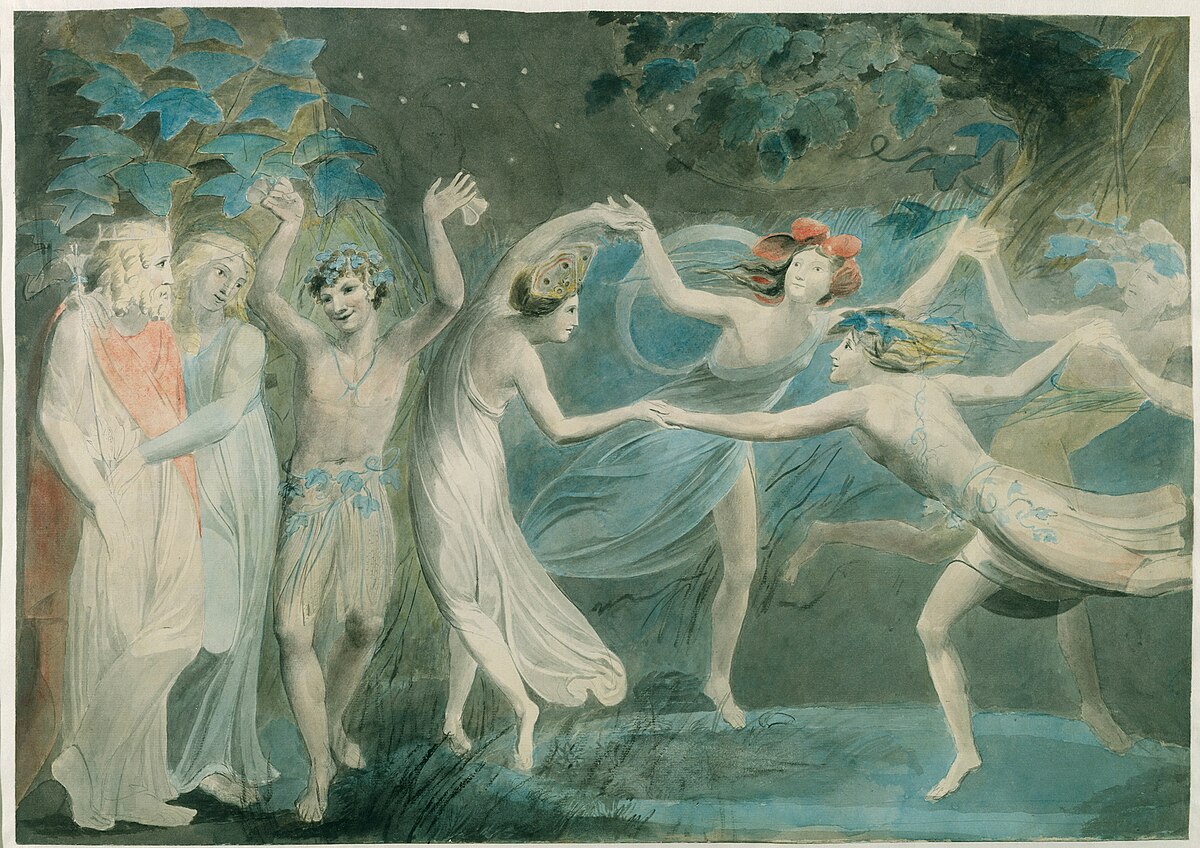 |
| William Blake's illustration to "A Midsummer Night's Dream" |
Northrop Frye realized that Shakespeare’s comedies and romances always featured a “green world,” in which the hero finds himself, one way or another, in about Act Three. In it the protagonist’s problems all are solved, to produce the play’s happy ending. It should not be necessary here to enumerate all the examples; Frye has cited them for us.
A valuable insight, but Frye was not all that smart. He then identified this “green world” with nature and with fertility rituals.
But the “green world” is never natural. Sometimes it is forested; but it can as well be Belmont, Portia’s castle. It is, rather, supernatural, which is the very opposite of natural. Think of Prospero’s island in The Tempest. The one consistent feature is that magic happens there. It is generally populated by fairies. It is fairyland.
Where is fairyland? Not out in the physical woods or wilds; in the imagination, in the forests of the night. It is the place where dreams and stories come from.
Shakespeare is the world’s greatest psychologist. His ability to see and express the motivations of his various characters is legendary; only Dostoyevsky comes close. And he is saying here that the cure for spiritual problems or for life problems—for “mental” problems—is the land of story, of art, of “play,” of the imagination.
He explains in Hamlet that art “holds the mirror up to nature.” But he does not mean nature in the sense of the physical world where man is absent. He means human nature. Read the full quotation:
“playing, whose end, both at the first and now, was and is, to hold as 'twere the mirror up to nature: to show virtue her feature, scorn her own image, and the very age and body of the time his form and pressure.”
Art shows virtue, scorn, and the zeitgeist; not bugs or trees.
Beyond his own plays with their “green world,” Shakespeare is pointing here to the value of fairy tales as a cure for spiritual disorders.
“The play’s the thing/With which to catch the conscience of the king.”
We ought to listen to him.












No comments:
Post a Comment